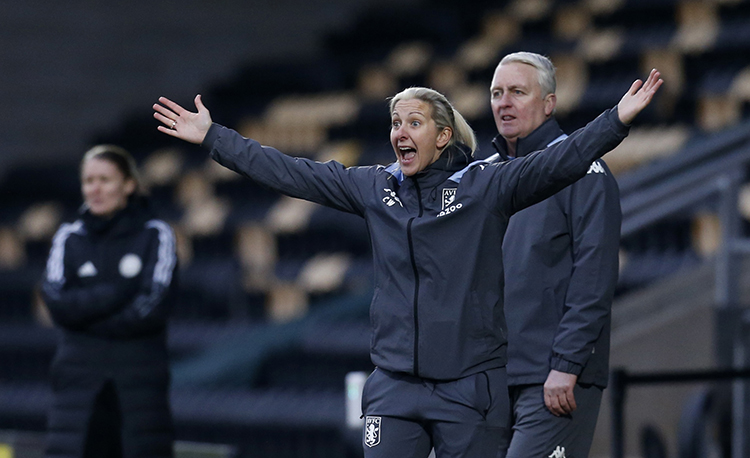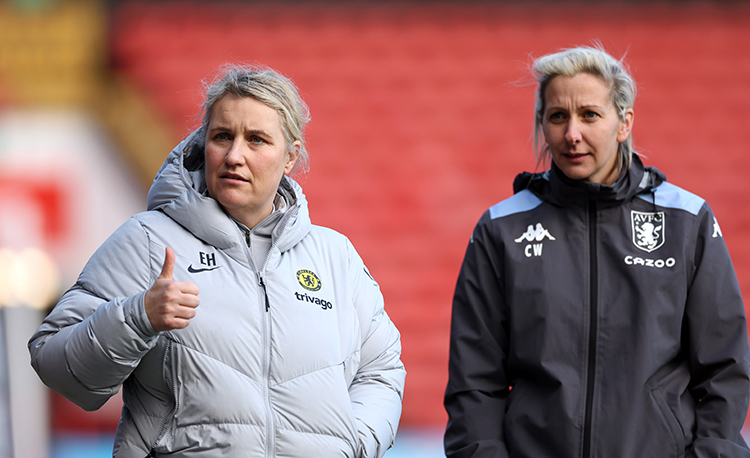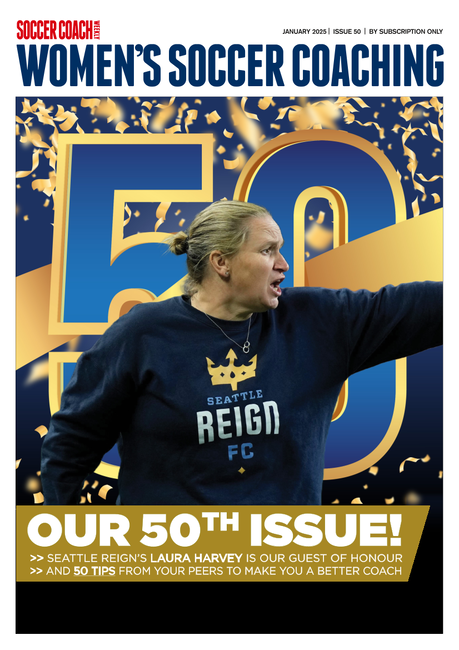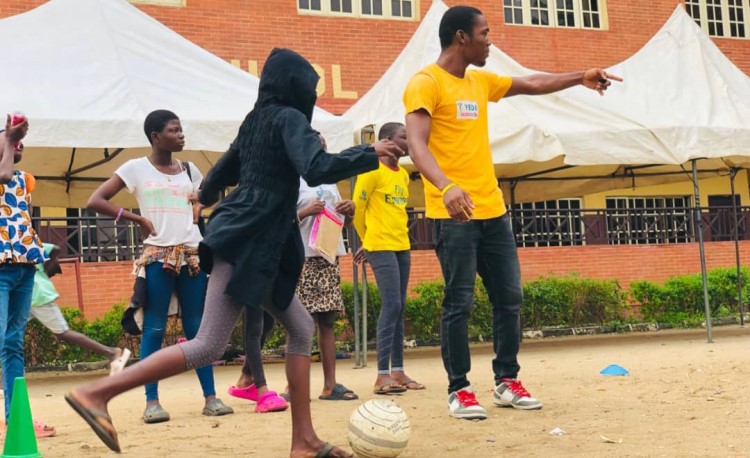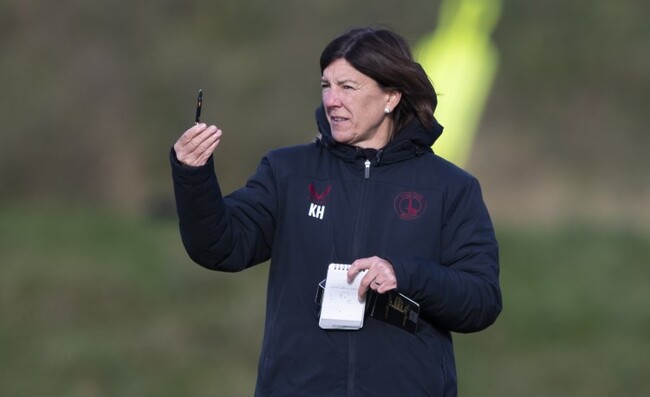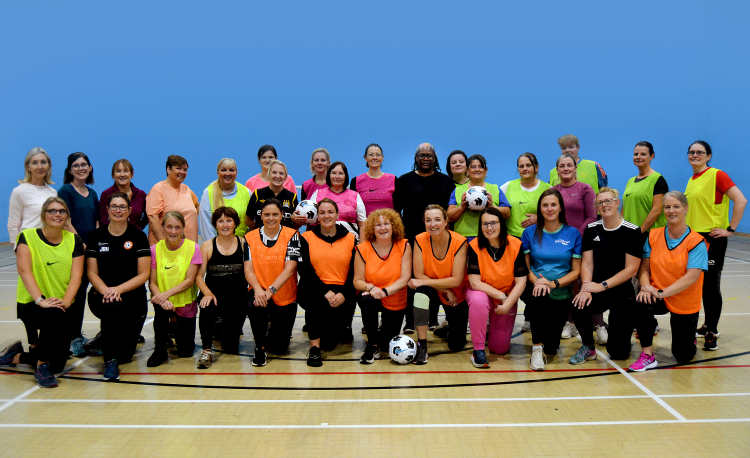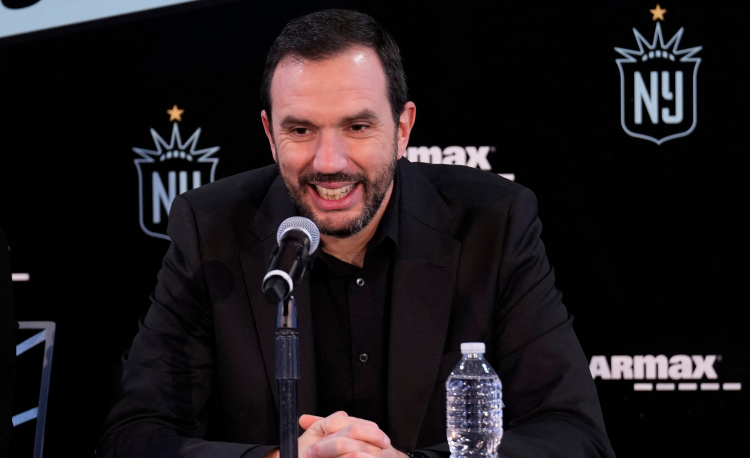You are viewing
1 of your 3 free articles
Carla Ward: self belief and making a difference
Aston Villa head coach Carla Ward discusses squad rebuilding, her journey to the top of the game and England’s Euro 2022 win with Steph Fairbairn
In November 2017, Carla Ward joined Sheffield United - then in the fourth tier of the English women’s pyramid - as player-assistant manager.
She had just left United’s cross-city neighbours Sheffield FC, who were in the second-tier WSL 2. It was the classic case of an experienced head dropping down a couple of divisions to offer the benefit of their experience, both on and off the pitch.
But just three months later came Ward’s Sliding Doors moment.
United manager Dan O’Hearne stepped down, forcing the 34-year-old Ward into a difficult decision – whether or not to hang up her boots and step into management full-time.
“If I didn’t take it at that moment, knowing I probably only had a few months left playing, then I potentially might have lost that opportunity,” she told WSC.
What followed in the five years since has been somewhat of a whirlwind - and has resulted in Ward being one of the most respected names in English women’s soccer.
As boss of Sheffield United, she was instrumental in the club’s application to join the FA Women’s Championship (the rebadged WSL 2). In the two full seasons she had at the helm, they finished fifth and second – the latter being the club’s highest pyramid finish to date.
“If I didn’t take that job at that moment, I potentially might have lost that opportunity...”
Her success was rewarded in August 2020 with her first top-flight job, at unfancied Birmingham City. In the face of off-field problems, she defied all predictions and ensured the team didn’t get relegated, earning herself a WSL Manager of the Year nomination for her efforts.
At the end of that campaign, she quit Birmingham for their fierce rivals Aston Villa and kept them up comfortably last season, while her old team went down.
Next month, Ward starts her second season in charge of the Villans - but when I sat down to interview her, there was only one place to start.
I had to ask someone with her stature and longevity in the women’s game in England what she thought about her nation’s historic win in the Euro 2022 final on home soil, which had happened the night before.
“It’s massive,” she told me. “Going into this tournament was probably the first time I was properly excited about an England team.
“Sarina [Wiegman, head coach] has done an unbelievable job and really put women’s football in this country on the map.
“This morning, there’s a sense of pride. Everyone’s talking about it.”
Ward can have particular pride, given that Villa were the only English team outside of the WSL’s ‘big four’ - Chelsea, Arsenal, Manchester City and Manchester United - to have a player in that England squad, in back-up goalkeeper Hannah Hampton.
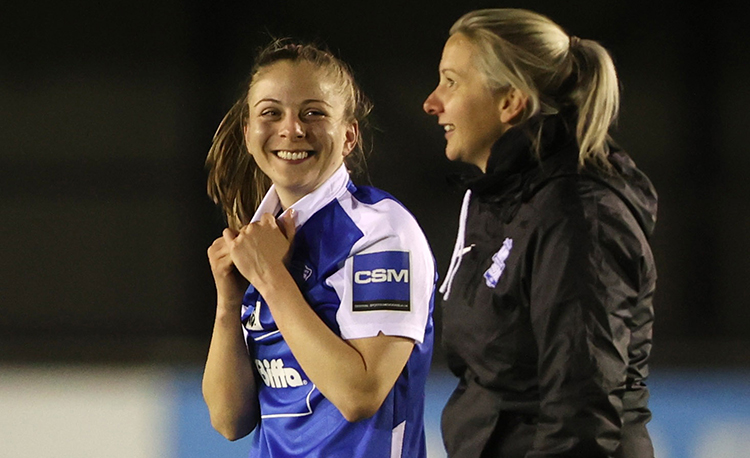
She also coached veteran midfield star Jill Scott, who came off the bench in the final, during a loan spell at Villa last season - and as we went to press, Ward snapped up left-sided player Rachel Daly, a Euro 2022 regular, from Houston Dash.
Ward’s vast experience, though, means that while she is excited about the here and now, she is not naïve to the challenges that may lie ahead.
“It’s now making sure we use this as a legacy, to drive the women’s game and increase attendances, because we know we can,” she said.
“It’s really important we stabilise the game and don’t move too quickly. A lot of good clubs are funding WSL teams really well. It’s about making sure you’re not throwing too much money at it too quickly, and making sure you build strong foundations.”
Though many in the women’s game in England share the same views as Ward, few have walked the walk in terms of ‘stabilising’ in the way she has.
Each job Ward has taken on has, in its own way, been about rebuilding, stabilising, and pushing forward.
With Sheffield United, it was about assembling and leading a team that could adequately compete in their new home of the Championship - two tiers up from where they had previously played - and then going on to exceed expectations.
With Birmingham, it was a case of walking into a building where the writing was seemingly on every wall.
The club was in disarray when she took the reins – having narrowly avoided relegation in the 2019-20 season, Ward inherited a squad of just eight available senior players.
England striker Ellen White - now her country’s all-time leading scorer and part of the Euros-winning team - was among those to have just left.
“Every single person I spoke to said ‘Don’t go there, it’s not going to be good for you’,” Ward admitted.
So why did she go there?
“Obviously, I had heard an awful lot about what was going on behind the scenes,” she explains. “It was a win-win for me.
“Everyone thinks we’re going to get relegated, so if I go in there and keep them up, I get my foot in the door in the WSL and I learn very quickly. If we get relegated, everyone thinks we’re going to [anyway]. I love a challenge.
"Nobody said ‘do it’. But I had a belief in myself that I could make a difference..."
“There wasn’t a single person that said, ‘do it’. But once I had a final call with my agent, I said, ‘This could be massive for me, No matter what happens, I can learn and develop’.
“I had a belief in myself that I could try and make a difference. So I did.”
Related Files
The lesson for coaches is, she says, to “look at where you want to get to and ultimately understand if that move is going to be a step in getting there.”
The step she took at Birmingham was the right one. Though the problems didn’t end – in April 2021, players formally issued a list of complaints about working conditions to the club’s board – Ward achieved what no one had thought possible, and kept the Blues in the WSL.
It was the result of strong foundations and togetherness.
Ward said: “We knew we didn’t have the money, so we had to go and find players that had a point to prove, players that had been told ‘no’.
“We actually called ourselves ‘The Misfits’, which was great. They were just a group of individuals that wanted to prove everyone wrong. I think we did that. And I think there was a lot of following for that group of players.
“They left everything out there and they wore their heart on their sleeves. And they were an unbelievable bunch to work with.”
When Villa came calling, it was, Ward says, tough to walk away from what had become a family at City.
“But ultimately, when a club like Aston Villa comes calling,” she says, “a club with such history and a CEO that is so passionate about the women’s game, it’s impossible to turn down.”
CARLA: ‘I WANT TO BE AT ASTON VILLA FOR THE NEXT 10 YEARS’
In 2020-21, Aston Villa’s debut season in the WSL, they finished 10th out of 12 teams. That is where Ward came in.
|
At the time of her resignation from Birmingham, Ward spoke about how unsustainable, both mentally and physically, what the team had gone through was. Having gone through that, you can’t begrudge her for leaping to some solid ground at Villa.
That is not to say, though, that it hasn’t been without its challenges.
The first was the squad overhaul she had to undertake as her first task. The previous season, Villa were newly promoted to the WSL and had narrowly stayed up.
When Ward took over the reins, she wanted to add experience to a squad that she felt was still heavy on players who had featured in the second tier.
Five were sold and one was loaned out, while eight new arrivals came in.
"When a club like Aston Villa comes calling, it’s impossible to turn down..."
“It was firstly experience, and secondly to develop the current playing squad,” she explains. “Could we get in players that were going to bring competition in every area?”
Once she had those players, it was about investing into them as people - just as it had been at her previous clubs.
“One of the things I like to think of as a strength of mine is understanding people,” she says. “What makes them tick? What’s hurt them? What’s their driver? Where do they want to get to and why?
“[It’s about] understanding them, what they’re like, [and] what they do in their spare time. If they can see you care, you’ve got more chance of getting more out of them.
“It’s not easy, particularly when there’s other bits and pieces going on, but if you can create a unity, they will always look after each other.
“I’m a people person, as many people know. I think that’s a really important aspect of the game. If you can get players playing with a smile on their face, you usually get more out of them.”
Having spent just 20 minutes interviewing Ward, I can’t help but agree. She is, indeed, a people person. And a wonderful coach to have at the forefront of the women’s game in England with so many more eyes upon it.
It will only be right that as the game grows, so does Ward’s reputation. She, like so many that came before her, has more than earned it.
‘Every single day I get to walk out there, the feeling is unbelievable’ – Carla on being a head coach in the WSL
“I love it. It’s pressure - but I think pressure is a privilege.
|
Newsletter Sign Up
Newsletter Sign Up
Discover the simple way to become a more effective, more successful soccer coach
In a recent survey 89% of subscribers said Women's Soccer Coaching makes them more confident, 91% said Women's Soccer Coaching makes them a more effective coach and 93% said Women's Soccer Coaching makes them more inspired.
*includes 3 coaching manuals
Get Inspired
All the latest techniques and approaches
Women's Soccer Coaching offers proven and easy to use soccer drills, coaching sessions, practice plans, small-sided games, warm-ups, training tips and advice.
We've been at the cutting edge of soccer coaching since we launched Soccer Coach Weekly in 2007, creating resources for the grassroots youth coach, following best practice from around the world and insights from the professional game.
